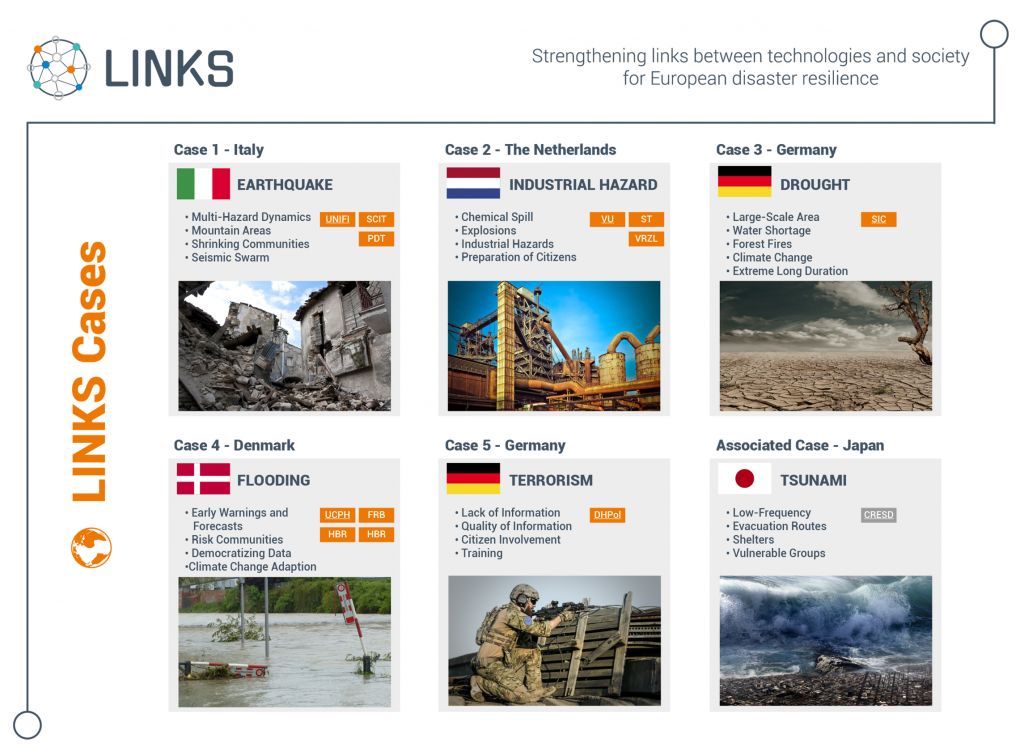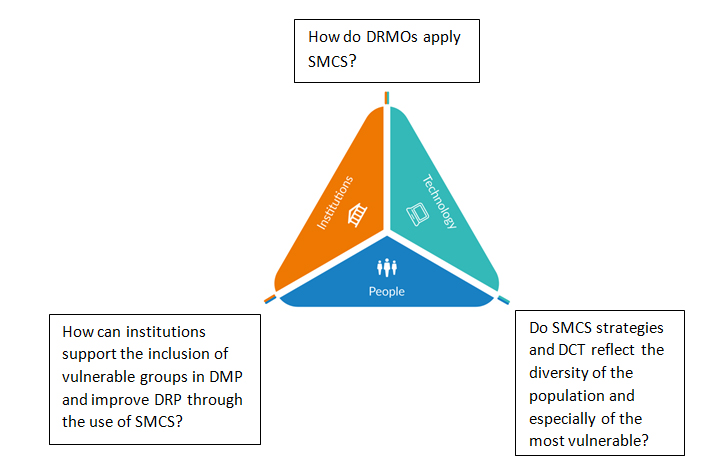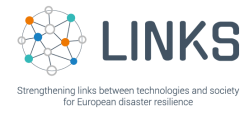
Sara Bonati, Università degli Studi di Firenze; Chiara Fonio, Vrije Universiteit Amsterdam; Simon Gehlhar, Safety Innovation Center; Emmanuel Raju, Anne Bach Nielsen, KØBENHAVNS UNIVERSITET
In LINKS, the cases serve the purpose of assessing the practical value of the LINKS Framework in four European countries (Denmark, Germany, Italy and The Netherlands) and in the frame of five different hazard scenarios (flooding, drought, terrorism, earthquakes and industrial hazards). The timeline for the cases goes from November 2021 to March 2022. However, data collection in some countries will already begin in June 2021 to enable the capturing of relevant data during ad-hoc campaigns, like the “cloudburst campaign” in Frederiksberg (Denmark). The campaign is aimed at raising awareness among citizens about their own role in flood prevention measures.

The cases were selected to represent ideal-typical hazard scenarios in those countries: this will enable the generation of insights that are potentially valuable to other situations in similar contexts. They play a key role in the project: it is through the cases that the LINKS Framework is developed, evaluated and refined so that it can be ready – by the end of the project – to serve the wider crisis management community.
Several stakeholders (e.g. researchers, practitioners) are involved in the so-called case assessment teams (CATs): the teams in each country will work on a set of common research questions and instruments (for example: surveys, interviews, observations, focus groups) revolving around the three knowledge bases developed in the LINKS project on disaster risk perception and vulnerability (DRPV), disaster management processes (DMP) and disaster communication technologies (DCT). The DRPV, DMP and DCT methodologies cover social, institutional and technical dimensions related to SCMS and disasters and are developed to define the research that will be conducted in all cases. The overarching research questions across the three LINKS knowledge bases ensure a certain degree of comparability across the findings in the cases.
The DRPV methodology looks at vulnerability as a dynamic concept (see deliverables: D2.1 and D2.2) that depends both on internal and external factors and it is closely interconnected and interdependent with DMP. Moreover, communication and information provided through SMCS have relevant potential consequences on vulnerability and on perception. Thus, the DRPV methodology aims at providing a tool that will support the use of SMCS and DCT in DMP, with a specific focus on vulnerable groups. Accordingly, a contextual analysis, based on diversity in cases and scenarios, is required. From a DMP perspective, the key concepts developed in deliverable 3.1 was visualised as the Resilience Wheel. This provides a novel way of approaching barriers and opportunities associated with applying SMCS in DMP from an institutional perspective. The Resilience Wheel was further discussed with each of the local case assessment teams across the LINKS project to suit the questions to the local needs and specific contexts. From a practical perspective, the DMP Resilience Wheel can serve as a tool for different disaster risk management organisations to improve their DMP process in the context of SMCS. Within the DCT knowledge domain one major research gap identified in deliverable 4.1 was addressed by the development of a classification schema – the DCT-schema. Although SMCS are becoming increasingly relevant for disaster management organisations (DMOs), the lack of a systematic and structured overview of DCTs has hampered the implementation and use of such technologies by DMOs. The DCT-schema enables the classification and comparison of DCT based on a comprehensive set of categories. The LINKS cases will be used to build on the initial results of the DCT-schema and to further adapt, improve evaluate and expand it.
The overarching questions across the three knowledge bases (captured in the figure below) and instruments developed will guide the local teams in four European countries to dig deeper into more specific questions so that “deep dives” can be carried out in each case, based on the needs and gaps identified by the practitioners.


